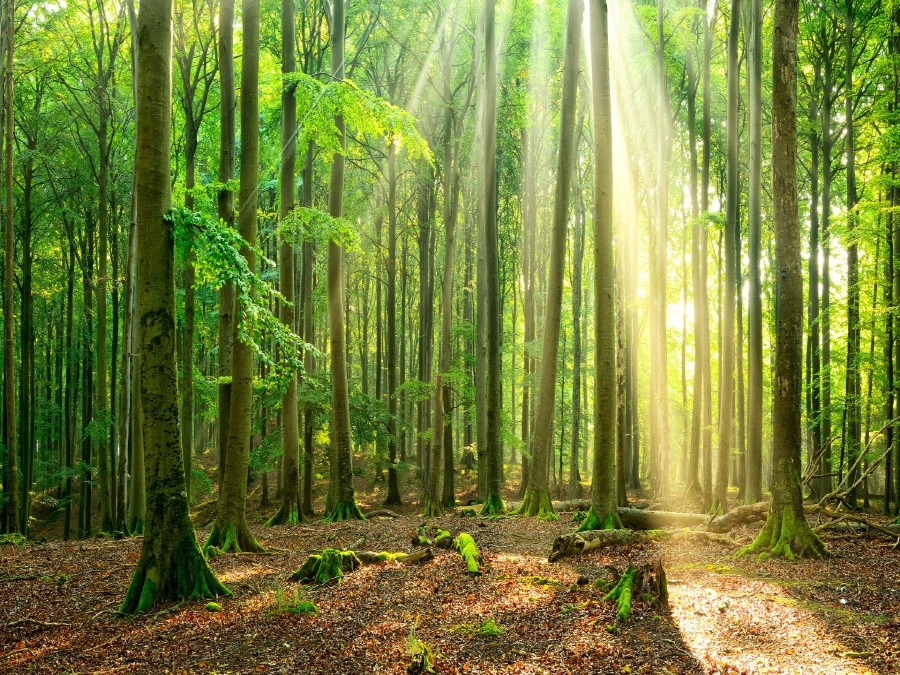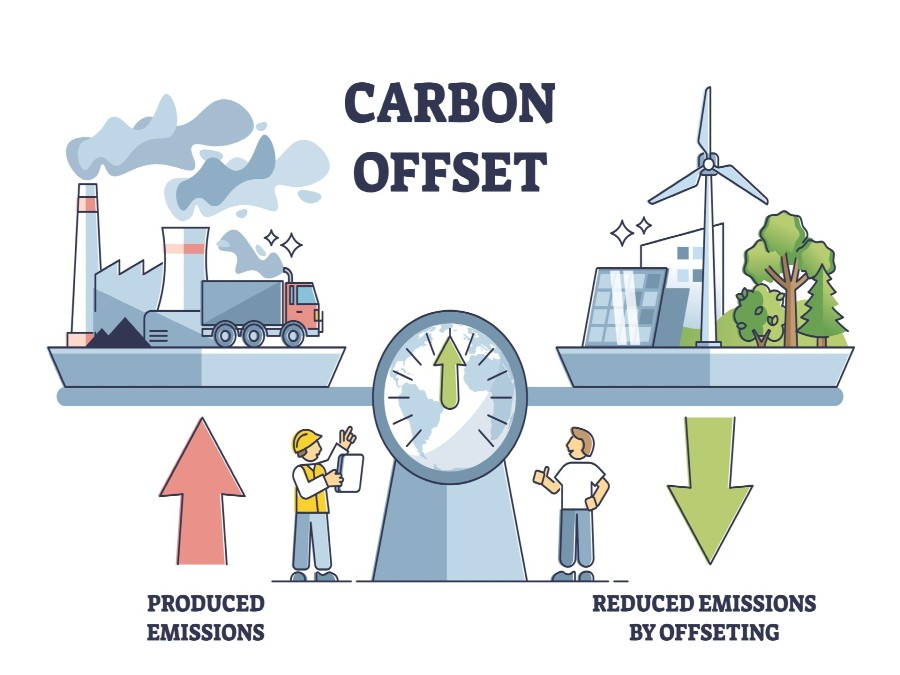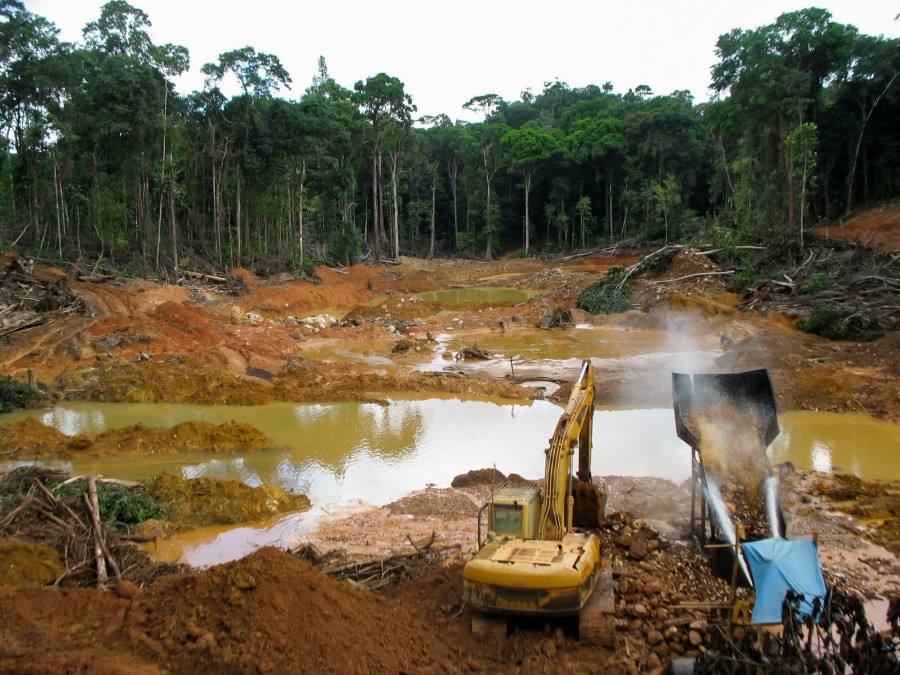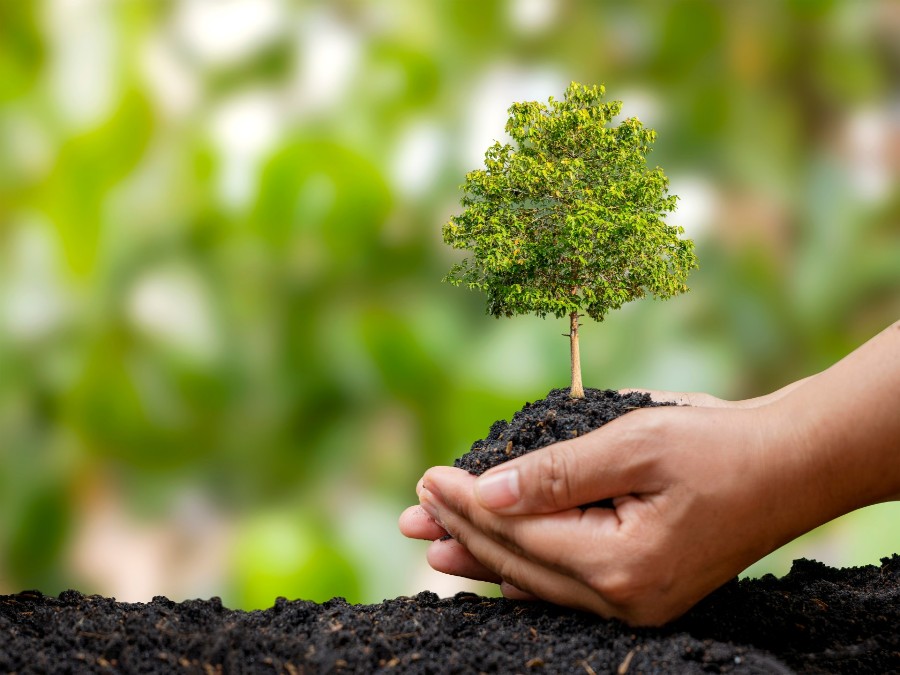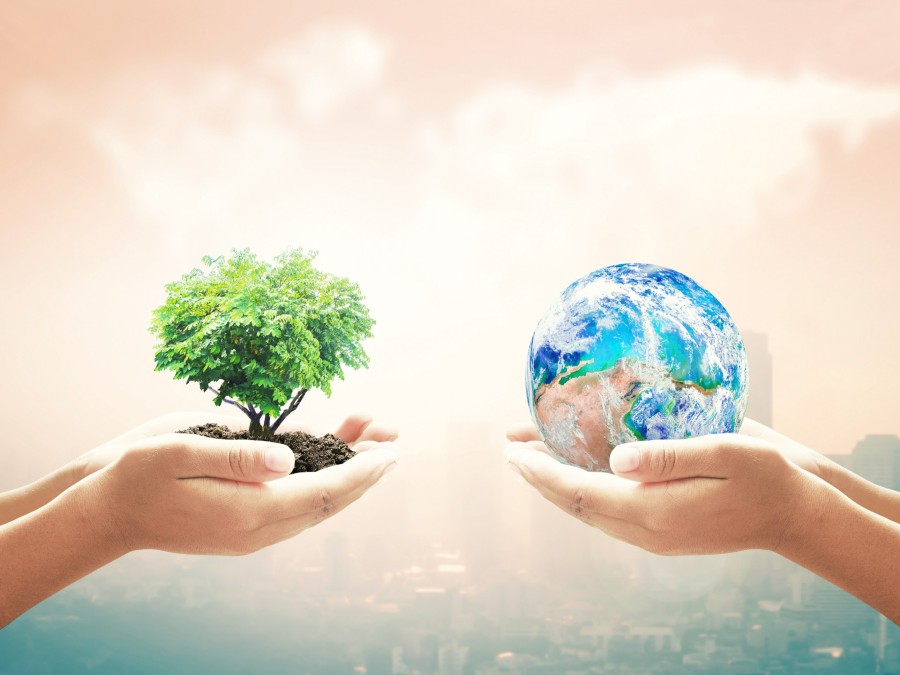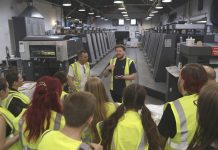Imagine the lengths you’d have to go to charge 12,164,300 smartphones. Picture the pollution of 100 return flights from London to New York. Or the carbon footprint of driving 310,600dpd kilometres by car.
These activities are equal to the emission of 100,000 kilograms of carbon dioxide, the same amount that Solopress has managed to offset in a little over a year.
Thanks to the way you’ve embraced our Solopress Green range, we’ve managed to hit this massive milestone. An extraordinary achievement in such a short period, our offsetting efforts are a vital part of our green mission. This project, which started as a sapling, is now genuinely taking root.
The 100,000 kg of carbon emissions that we’ve neutralised in just over a year is the equivalent of the yearly capture of CO2 from 8,000 beech trees and exemplifies our commitment to a greener future for everyone.
What is 100,000 kg of CO2?
100,000 kilograms is a pretty incomprehensible quantity to make sense of, especially when it comes to CO2 gas.
To put this into context, 100,000 kilograms is the mass of carbon dioxide that would be produced by:
- Driving 310,600 kilometres in your car
- Putting on 107,500 wash cycles at 60˚C
- Producing 6,000 pairs of running shoes
- Producing 8,100 kilograms of beef
- Melting 300m3/300,000 litres of ice in the Arctic
- Setting off 100 hot air balloons at once
The goal of carbon offsetting
Addressing our carbon footprint is important as it’s a critical index for measuring our impact on the environment.
Carbon footprint is a phrase we hear frequently in reference to environmental impact. It’s the total carbon emissions resulting from the production of specific goods or services or the combined activities of a company, household or individual.
It’s a useful yardstick for green-thinking companies looking to calculate and neutralise their emissions by contributing to beneficial activities that help remove an equivalent amount of CO2 from the environment.
By reducing carbon emissions, carbon offset projects play a huge role in the fight against global warming.
Carbon offsetting is the approach of balancing the amount of carbon dioxide we release by implementing schemes that actively remove carbon dioxide from the air somewhere else.
Turning concepts into projects
Carbon neutrality means the carbon emissions of companies, processes or products have been calculated and offset by aiding internationally recognised carbon offset projects.
Since greenhouse gases such as CO2 are distributed evenly once they’re released into our atmosphere, it’s not important where on the globe we establish offsetting projects. Therefore, greenhouse gas emissions can be offset in a different location from where they were generated.
With this in mind, we’re currently supporting three South American offset projects: two in Northeast Brazil and one in Nicaragua. These three offset projects combined save 795,000,000 kg of carbon dioxide each year. Staggeringly, 82% of that comes from the Brazilian wind farms alone.
Piauí and Pernambuco: wind-powered energy in Brazil
Wind energy, in the states of Piauí and Pernambuco of Northeast Brazil, is currently the biggest project we support. Here, there is an operation of 14 wind power plants which has an astonishing annual CO2 offset of 650 million kilograms.
Emissions saved are calculated by measuring how much CO2 would have been released by generating the same amount of energy using standard energy production methods.
This project has a preventative effect on carbon dioxide emissions, as the clean and renewable energy provided by the wind turbines would have otherwise been produced by burning fossil fuels.
Protecting Pará: Rainforest conservation in Brazil
The second project we support in Northeast Brazil, in the region of Pará, addresses the issue of forest protection.
More than 200,000 acres of rainforest are burned every day, with 150 acres lost every minute.
Imagine losing 75 football pitches every minute. This would wipe out the 92 professional English football teams in under 90 seconds!
With an estimated 17% of the Amazon rainforest lost in the last 50 years, forest protection projects like the one in Pará are keeping trees rooted where they belong, giving deforestation the red card.
Here, commercial deforestation is prohibited within a 97,000 hectare (970km2) safe zone. Cultivation of the açaí fruit, a superfood increasingly in demand among western consumers, provides local communities with an alternate income in addition to protecting their forests.
Rainforests stand among our planet’s most indispensable environmental resources in their capacity as carbon sinks. By protecting this area of rainforest, the Pará project safeguards the absorption of 108 million kilograms of CO2 annually.
Reclaiming Rio Kama: afforestation in Nicaragua
In Nicaragua, the project we support is based in the region of Rio Kama, with the goal of afforestation. This is the process of reinvigorating a degraded landscape into a flourishing rainforest once again.
This project covers 2,361 hectares, with an additional 1,000 hectares of older forest incorporated into a conservation zone.
Offsetting an annual volume of 37 million kilograms of CO2, afforestation is becoming one of our most valuable measures when it comes to tackling the environmental damage associated with deforestation.
The bamboo solution
Afforestation in Rio Kama has been achieved with the help of over one million native species of giant clumping bamboo.
Bamboo is gathering a positive reputation as a commercially viable crop whose fibres are finding uses in a variety of industries as an eco-friendly alternative to manmade textiles as well as timber products.
Bamboo poles are selectively harvested once they mature because they’re fast-growing and renewable. As a result, this leaves time for other poles to regenerate.
In stark contrast to axing down trees, cultivating giant clumping bamboo genuinely helps to mitigate global warming. By providing an efficient carbon sink, bamboo is one of the most sustainable, deforestation-free products available.
Partnering up with ClimatePartner
Supporting these three projects involves us collaborating with ClimatePartner, who provide climate action solutions to help businesses neutralise their carbon output.
These range from climate action strategies to carbon neutral products with the support of international carbon offset projects.
By calculating the carbon resulting from the manufacturing of materials used in our Solopress Green range, ClimatePartner guarantees that an equivalent contribution is made to the South American projects we support.
ClimatePartner currently has approximately 400 internationally recognised carbon offset projects all over the world, mainly in developing countries. They work alongside 3,000 companies in over 35 countries.
The human element
Climate Partner projects are not focused solely on carbon footprint related issues. They also promote sustainable development within communities by improving:
- Access to clean drinking water
- Expanding infrastructure
- Creating jobs for local people
- Preserving biodiversity.
Combined, these improve local economies and creates a healthier, greener future for developing countries.
One positive consequence of carbon offset projects in developing countries is that technology transfer allows communities to bypass outdated, harmful technologies and dive straight into efficient, modern technologies that are kinder to the environment.
Sourcing responsibly, delivering sustainably
Being a printing company, the bulk of our production is through paper. Therefore, we use recyclable materials wherever possible to minimise our carbon footprint.
Wherever possible we use paper stocks whose raw materials are guaranteed to have sustainable origins.
We were among the first commercial printers to adopt vegetable-based inks as an alternative to petroleum-based inks.
Green by nature
Our entire operations are powered by electricity derived from 100% renewable sources.
Thanks to your support of our Green range, we’ve been internationally certified. This was by the world’s largest developer and accreditor of international standards, ISO, the International Organisation for Standardisation.
Surpassing even our own high environmental standards, the Solopress Green range is a selection of eco-friendly products made from entirely recycled materials with zero carbon footprint.
Practising what we preach
In the UK, only 8% of businesses claim to be carbon neutral. According to YouGov, 46% of UK businesses intend to be by 2050, while 31% don’t aspire to become carbon neutral at all.
We’re proud that we can back up our eco-friendly stance with concrete action and justifiably present ourselves as an environmentally conscious business, not just box tickers.
More crucially, we’re proud that, by investing in projects in developing countries, we’re helping communities in Brazil and Nicaragua to thrive and providing long-term security for their homes and livelihoods through conservation and afforestation.


